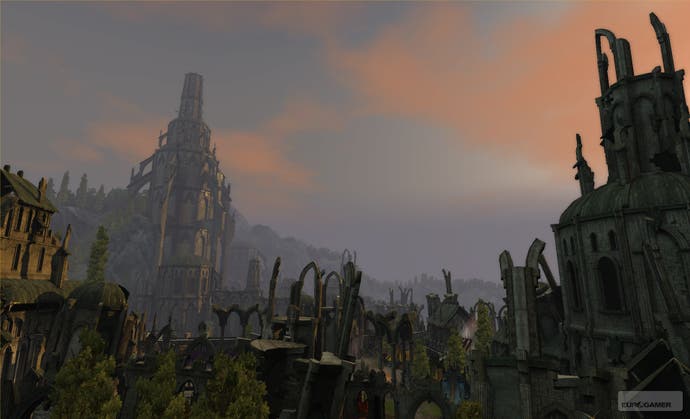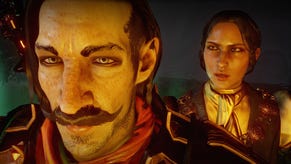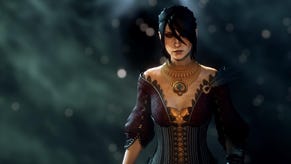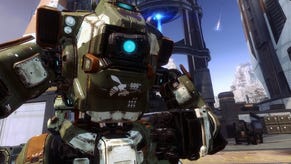Dragon Age: Origins
Where be dragons?
Combat happens in real time, with skills selected from a time-honoured action bar and the character manipulated with WASD controls. You'd be tempted to say the game played like an offline World of Warcraft, if it wasn't for the optional "pause and play" system. Once paused, you can cue up series of commands and switch between members of your party, and this is where we suspect the real meat of Dragon Age's combat lies.
NPC party-members are controlled by autonomous AI in real-time, but once controlled offer up their own limited action bars, providing some variety and tactical flexibility. Pause also allows you to string together combos neatly, across single or multiple enemies, and BioWare is clearly working to provide skills that play off each other within combos - such as the warrior's shield bash being used to open up enemy defences for more direct strikes, or the mage casting a slick of oil before setting alight with a fire spell.
Much is made of the fact the combat will be "scalable", but although the engine can throw vast numbers of characters around in the live cut-scenes - as evidenced by the Darkspawn charge that introduces the grand battle in the demo - we don't see much evidence of this in gameplay, with the most spectacular action happening tellingly off-camera. Instead, encounters with small groups of mobs culminate in a conventional four-on-one boss battle with an ogre.

There is a least some impressive physicality on display here, with the ogre picking up, shaking and tossing ragdoll party members around, rather than simply gesturing large red negative numbers into existence above their heads. It's no Diablo III - it's slower by several treacle-vats than Blizzard's forthcoming monster-mash - but Dragon Age does see BioWare willing to allow a soupçon of action into its hallowed RPG template.
Visually, Origins is technically impressive and flows smoothly, if not rapidly, from story to combat to exploration to conversation, within an elegantly restrained interface. It rarely excites, though. Its looks are as coolly handsome and restrained and hedge-betting as the characters who never say anything with feeling, because they have to deliver three responses the same way. There's grace and detached splendour here, but not much imagination, or guts, or glory. Dragon Age: Origins looks and sounds like a war in a library.
There will be a great many fans who are overjoyed to see the effective return of Baldur's Gate, and we certainly wouldn't suggest that they're wrong. As scant as gameplay details are - considering the game is due out in "early 2009", BioWare is playing its cards close - we are prepared to bet that Dragon Age: Origins will be as luxurious and welcoming a PC RPG as you could wish for, a real leather-armchair game. As the foundation of a franchise though - as the keystone, the origin, of a new fantasy universe - we can't help but wish it was a bit more fantastical.
Dragon Age: Origins is due out on PC in early 2009.










.png?width=291&height=164&fit=crop&quality=80&format=jpg&auto=webp)




.jpg?width=291&height=164&fit=crop&quality=80&format=jpg&auto=webp)
